etiology Learn more about etiology
-
Flower disease and its etiology

Flower disease and its etiology
2018-05-04 -
Root disease and its etiology

Root disease and its etiology
2018-05-05 -
Etiology, diagnosis, prevention and treatment of canine gastritis (2) gastritis

Gastritis refers to acute or chronic inflammation of the gastric mucosa. Some can spread to the intestinal mucosa to appear gastroenteritis. Gastritis is the most common disease in dogs. [etiology] eating spoiled or indigestible food and foreign bodies. The eye is caused by strong irritant drugs. Other diseases are secondary, such as canine distemper, canine infectious hepatitis, parvovirus enteritis, liver fluke, pancreatitis, glomerulonephritis and intestinal parasitic diseases. [symptoms] the main clinical features are vomiting, abdominal pain and mental depression. Sick dogs have a strong sense of thirst, but vomit immediately after drinking.
2019-01-15 -
What is the etiology and prevention and treatment of edible fungus Penicillium?

In nature, Penicillium spores are ubiquitous, usually in our edible fungus production, every production process may be infected with Penicillium. Today, let's take a look at the etiology and prevention of edible fungus Penicillium. 1. Edible fungus Penicillium
2020-11-09 Edible fungus Penicillium etiology and prevention and treatment what is it? -
Etiology and treatment of bovine laminitis

Etiology and treatment of bovine laminitis
2019-08-09 -
Etiology, diagnosis and treatment of chronic glomerulonephritis in dogs

Chronic glomerulonephritis is referred to as chronic glomerulonephritis, which refers to diffuse inflammation of glomeruli. A chronic renal disease characterized by degeneration of renal tubules and cell infiltration and connective tissue hyperplasia in the renal interstitium. The etiology of chronic glomerulonephritis is the same as that of acute glomerulonephritis. However, the stimulation of the pathogen was mild and lasted for a long time. In addition, there are also acute glomerulonephritis that has not been completely controlled and converted to chronic nephritis. [symptoms] the development of chronic glomerulonephritis is slow and the clinical manifestation is mild. It can be seen that the sick dog is gradually losing weight. Initial stage
2019-01-15 -
Control of common diseases of cultured Sturgeon

Sturgeon bacterial enteritis 1. Symptoms and etiology this disease is caused by bacteria. The symptoms are abdominal and oral bleeding, redness and swelling of the anus and weight loss of the fish. 2. The prevention and treatment method is fed with 0.2% bait containing dysentery and can be cured after continuous feeding for 5-6 days. Sturgeon swollen mouth disease 1.
2020-11-08 Aquaculture Sturgeon common disease control bacteria -
Brief introduction of yellowing of asparagus leaves and its etiology
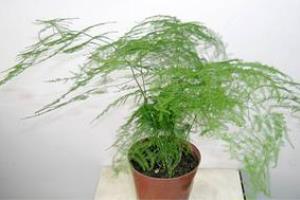
Brief introduction of yellowing of asparagus leaves and its etiology
2019-03-08 -
What to do about the yellowing of Cymbidium leaves: etiological analysis and treatment
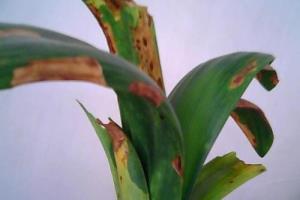
What to do about the yellowing of Cymbidium leaves: etiological analysis and treatment
2019-03-02 -
Etiology and treatment of nutritional anemia in piglets
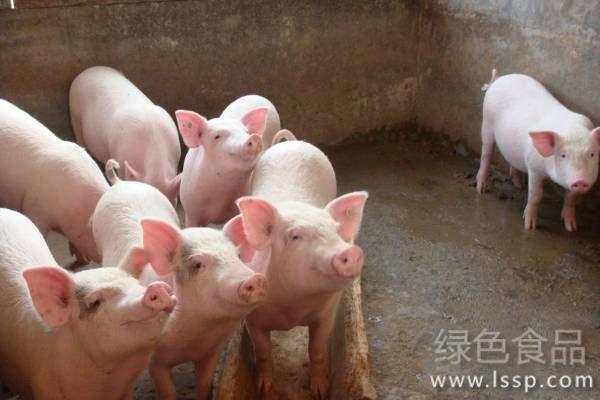
Etiology and treatment of nutritional anemia in piglets
2019-01-16 -
Etiological analysis of moldy forage poisoning in rabbits in rainy season

Entering the rainy and humid season, especially in the month, readers around the country have frequent telephone calls, frequent rabbit disease, continuous losses, and most of the symptoms are wilting, tremor, paralysis, paralysis, absurdity, diarrhea and so on. He looked like a coccidia before he died. However, it is comprehensively proved that it is caused by mold poisoning. Because the disease is urgent, the death is quick, the loss is big, and the danger is wide, so I write an article to warn you. 1. Etiological analysis: the month is rainy, hot, hot and humid. If the forage is not stored properly, it is easy to heat, ferment, mildew and produce mycotoxins, especially yellow koji.
2019-01-16 -
Etiology and pathogenesis of lung cancer in traditional Chinese medicine

The previous exchanges and sharing of "dialectical treatment of lung cancer with traditional Chinese and western medicine", "selection of strategies for the treatment of lung cancer" and the occurrence and development of common diseases all reflect the thousands of changes caused by people's lack of righteousness, wind, cold, summer, dampness, dryness and other external pathogens invading.
2018-10-04 -
Etiology and prevention of soft rot in orchids

Etiology and prevention of soft rot in orchids
2018-04-04 -
Etiology, Diagnosis and Prevention of Gastritis in Dogs (Ⅰ)

Gastritis can be divided into acute gastritis and chronic gastritis two kinds. Most dogs suffer from acute gastritis. [Cause] First, due to overeating, or eating rotten food, foreign matter or irritating drugs. Second, secondary to certain infectious and parasitic diseases. Third, gastric mucosa long-term stimulation, anemia, acid deficiency, malnutrition and so on. Depression, vomiting and abdominal pain are the main symptoms.
2019-01-16 -
Etiology, diagnosis, prevention and treatment of esophageal infarction in dogs

[cause] first, excessive hunger, eating too quickly, swallowing large mouthfuls of food without full chewing, or being disturbed during feeding, suddenly swallowing with the head raised, and so on. Second, due to play and misswallow gloves, wooden balls and other foreign bodies make esophageal obstruction. Third, the feed is mixed with bone, meat, fish bones and other things, blocking when eating. Esophageal infarction can occur anywhere in the esophagus, but it is most likely to occur at the thoracic entrance, the base of the heart and into the hiatus of the esophagus. [main points of diagnosis]
2019-01-15 -
Etiology, Prevention and treatment of Brown spot of Tulip

Tulip brown spot is a common disease of tulips, which is more serious in the rainy season. Its pathogen is BotrytistulipaeLind. The editor sorted out the relevant knowledge about tulip brown spot for you.
2018-07-03 -
Etiology and treatment of tremor in newborn piglets

The tremor of newborn piglets is mostly caused by the infection of type 1 circovirus during pregnancy. Sometimes type 2 circovirus can also cause this phenomenon. The infection caused the disturbance of myelin development and nerve conduction of nerve fibers in piglets, and caused "jumping disease". It can be treated by artificial assisted lactation. Breeders help piglets look for nipples, and as long as they are fed, the piglets can recover over time.
2019-01-16 -
How to raise koi? etiology and prevention of viremia in spring of koi
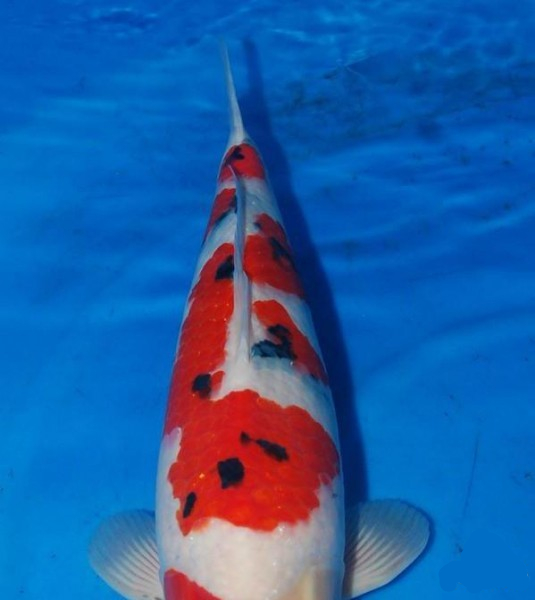
Spring viremia of koi carp is mainly caused by carp rod virus, which is a common disease in brocade carp breeding. It is only prevalent in spring when the climate is getting warmer (water temperature 13 ~ 20 ℃). The symptoms are mainly harmful to koi over one year old, and fry and breeder fish are rarely infected. ...
2019-05-21 -
Culture methods and misunderstandings of brocade carp, etiology and control of tail rot disease of brocade carp
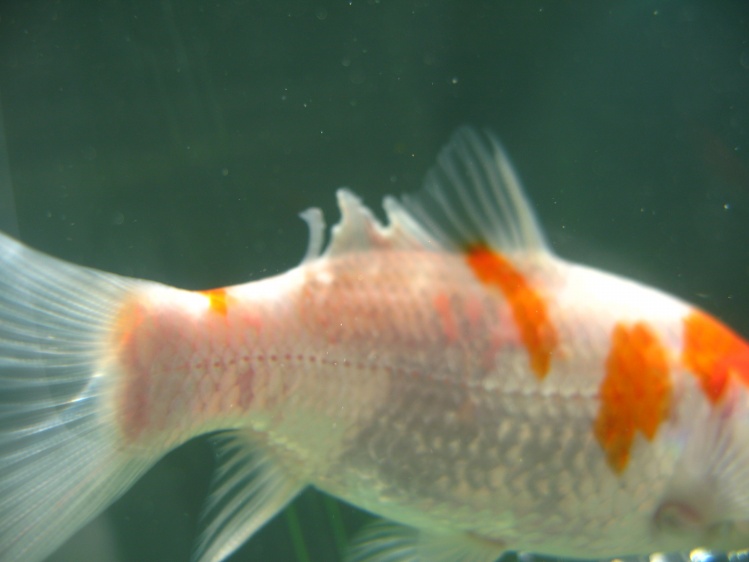
Brocade carp rotting tail disease and burrowing disease get sick through skin infection after caudal fin injury. In the early stage of the disease, there are yellow or yellow-white sticky substances on the outer edge and caudal stalk of the fin, then congestion, inflammation and decay at the caudal fin and caudal stalk, and in severe cases, the caudal fin rots and ulcers.
2019-05-21 -
Abnormal behavior and etiology of colorful diseased fish

General colorful diseased fish we can roughly understand its possible cause by abnormal behavior, appearance and so on. Abnormal behavior of diseased fish and its causes: 1. The fish floats to the surface, slow and listless-lack of oxygen, Gill parasites and bacterial infections. two。 The feeding rate falls to the bottom-the water quality may deteriorate. 3. Set in a corner of the bottom of the cylinder, shrinking fins, etc.-there may be internal and external parasites, bacterial infections, etc. 4. Friction cylinder wall or heating tube-external parasite infection. five
2019-01-16
